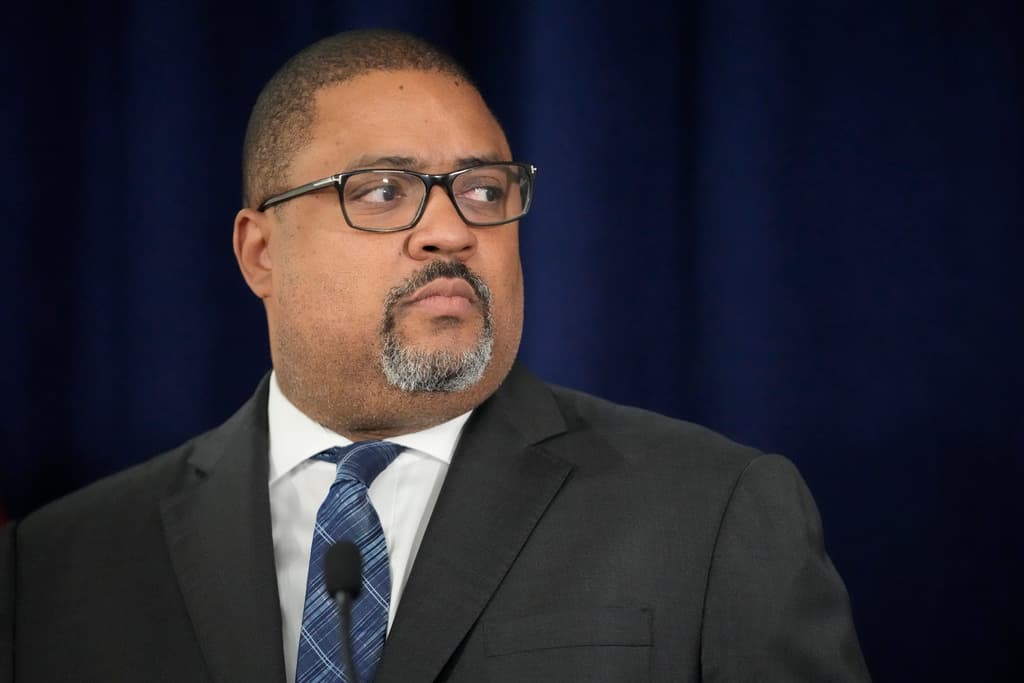DA Bragg Wants Us To Believe His Pursuit of Trump Isn’t Political
Yet even before he was elected to office, the Manhattan district attorney had the 45th president in his sights.

As New York prepares to put the 45th president of America on trial, the Associated Press is out with a story it headlines as “Manhattan District Attorney Alvin Bragg says Trump’s hush money criminal trial isn’t about politics.” Go ahead, kid me. Reminds us of the bridge at Brooklyn that can be picked up for a song. There’s not a sentient New Yorker who believes that this case isn’t about politics.
Please check your email.
A verification code has been sent to
Didn't get a code? Click to resend.
To continue reading, please select:
Enter your email to read for FREE
Get 1 FREE article
Join the Sun for a PENNY A DAY
$0.01/day for 60 days
Cancel anytime
100% ad free experience
Unlimited article and commenting access
Full annual dues ($120) billed after 60 days

